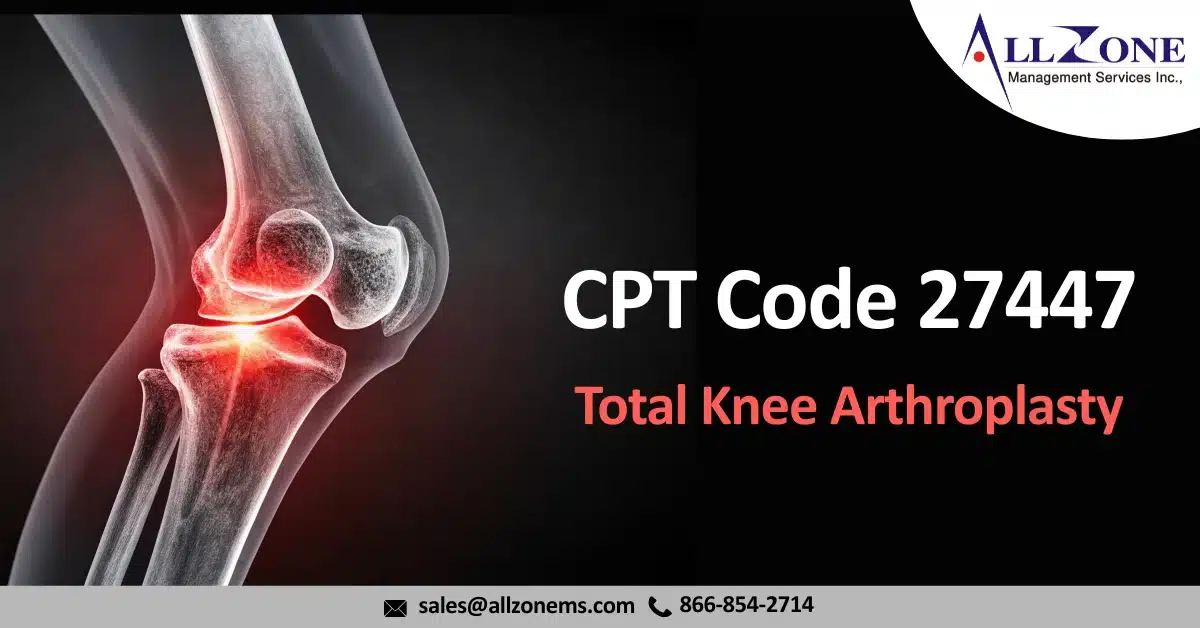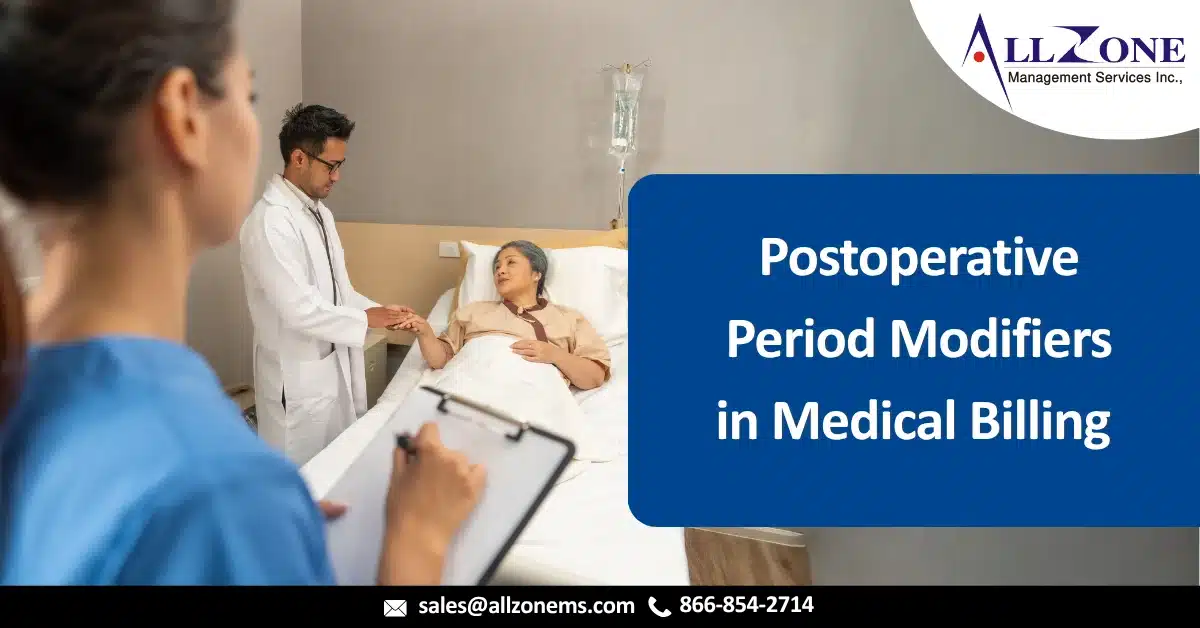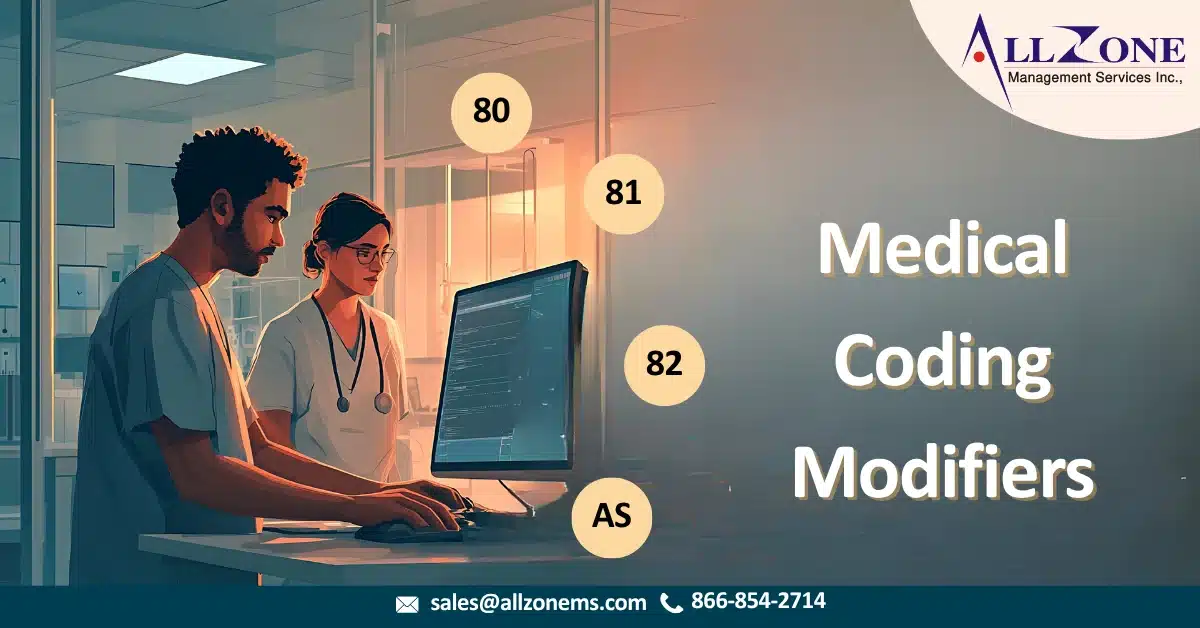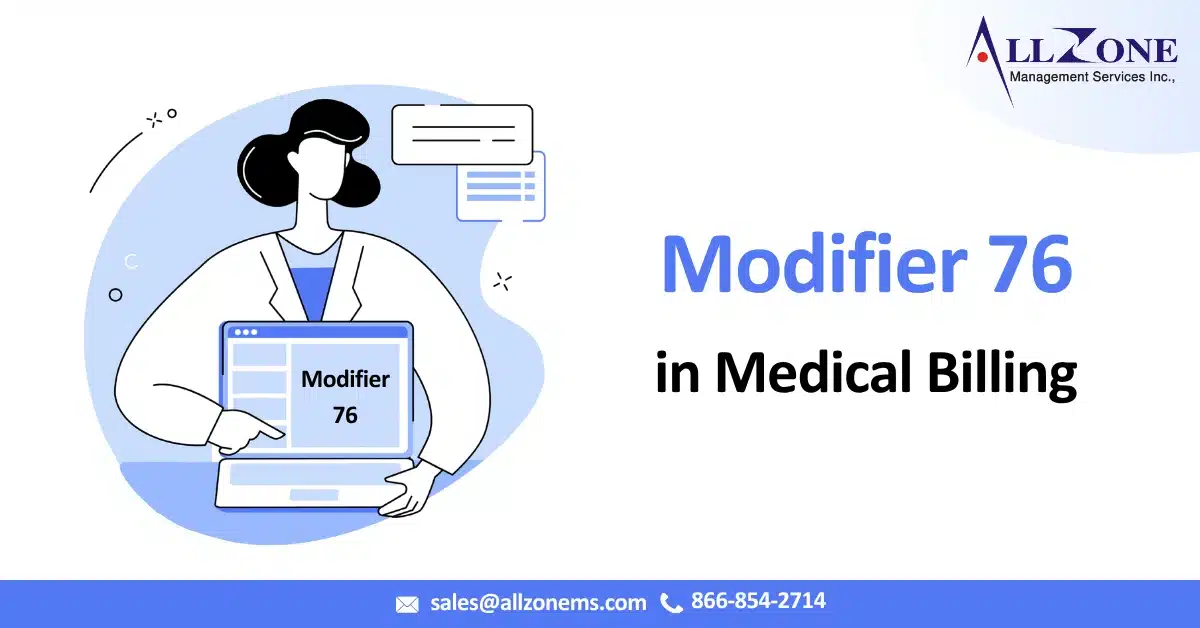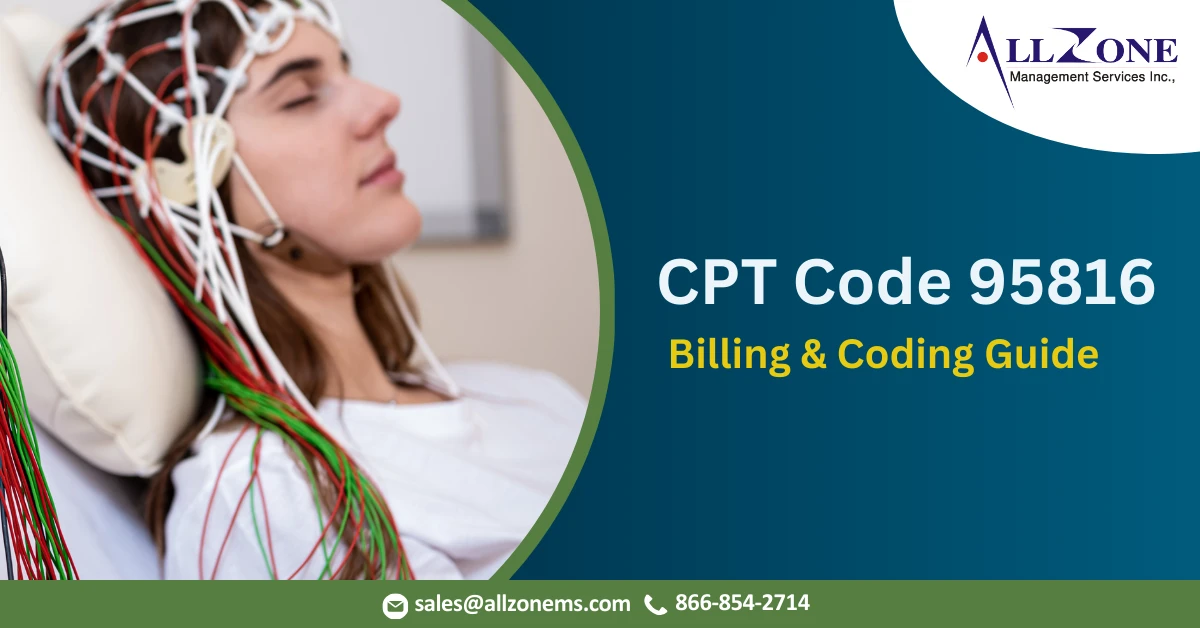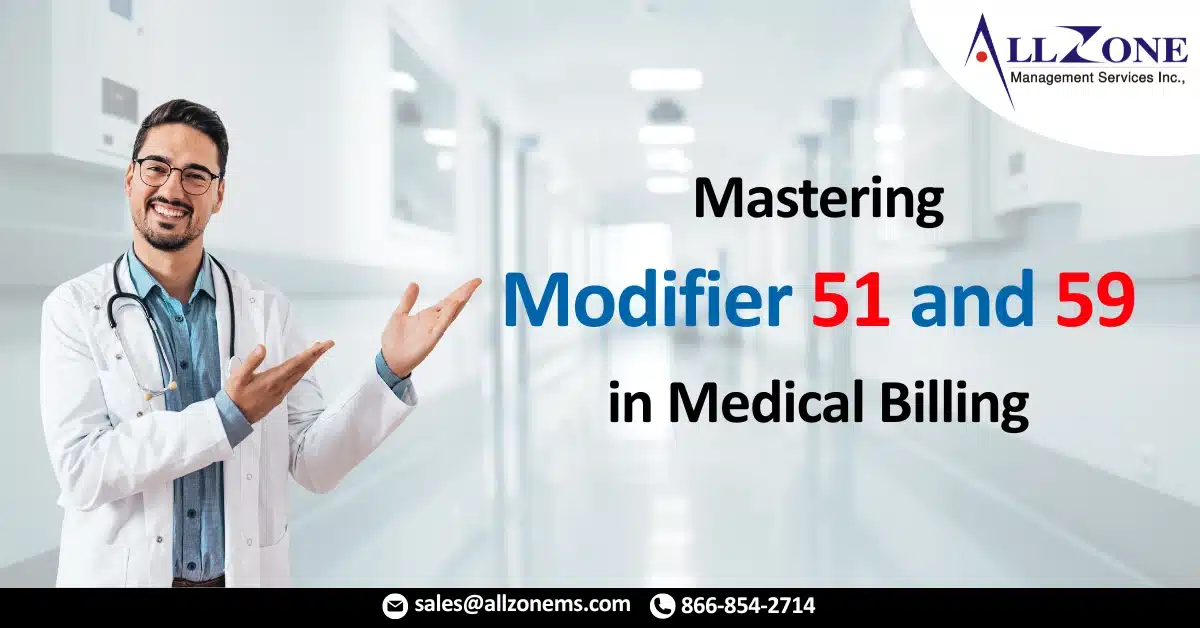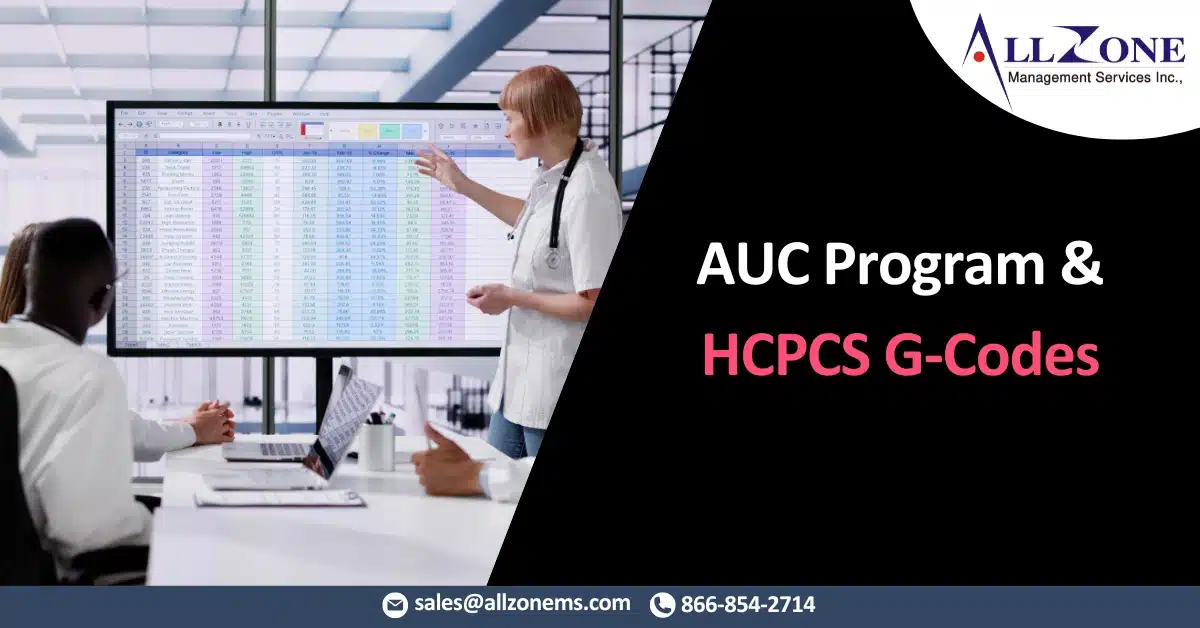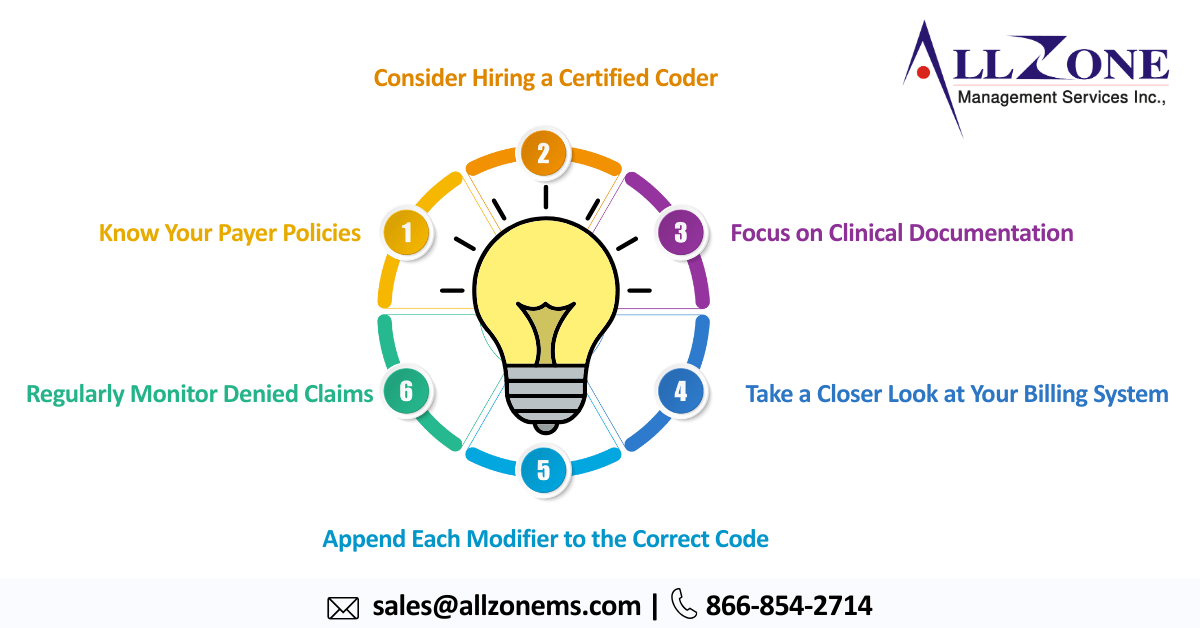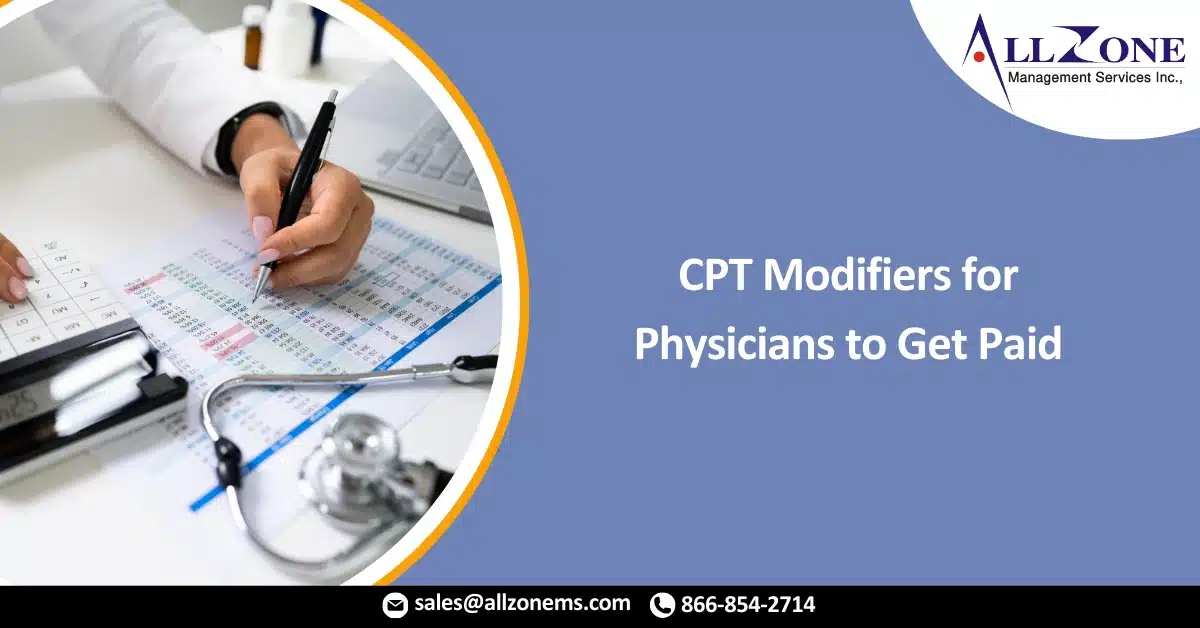Accurate CPT coding plays a critical role in ensuring timely claim approvals and consistent revenue for healthcare providers. CPT codes communicate the services rendered to payers, and even small errors can result in claim rejections, delayed reimbursements, or compliance risks. As payer rules become stricter and automated claim reviews more common, preventing CPT coding errors […]
Total knee arthroplasty (TKA), also known as total knee replacement, is one of the most commonly performed orthopedic procedures in the United States. With the rising number of patients suffering from osteoarthritis, rheumatoid arthritis, and other degenerative joint diseases, the demand for accurate coding and billing for knee replacement surgeries has never been greater. For […]
In medical billing, modifiers play a vital role in ensuring accurate reimbursement, especially during the postoperative period. The postoperative period refers to the specific timeframe following a surgical procedure when related care is typically included in the surgical package and not separately reimbursable. However, certain situations require physicians to perform additional procedures or unrelated services […]
Medical billing and coding is a critical part of healthcare revenue cycle management (RCM), ensuring providers are reimbursed accurately for their services. Among the many modifiers used in coding, Modifiers 80, 81, 82, and AS are essential in defining the role of assistant surgeons during procedures. Correct usage of these modifiers can prevent claim denials, […]
Introduction In medical billing, modifiers play a vital role in explaining the circumstances under which a service or procedure was performed. One such important modifier is Modifier 76, which helps billers and coders indicate when a repeat procedure or service is performed by the same physician or qualified healthcare professional. Accurate use of Modifier 76 […]
In the complex world of medical billing and coding, accuracy is paramount. CPT Code 95816, which covers “Electrocorticography (ECoG) under anesthesia or sedation,” is a critical code for neurologists and neurosurgeons. This specialized procedure requires meticulous documentation and precise coding to ensure proper reimbursement and compliance. Given the complexities involved, many healthcare providers are turning […]
Navigating the world of medical billing and coding can be tricky, especially when it comes to modifiers. Getting them right is crucial for accurate reimbursement and compliance. This guide will walk you through two of the most important modifiers: Modifier 51 and Modifier 59. We’ll explain what they are, how to use them, and the […]
The Centers for Medicare & Medicaid Services (CMS) initiated the educational and operations testing phase of the Appropriate Use Criteria (AUC) program. During this period, Medicare Administrative Contractors (MACs) began accepting AUC-related modifiers and HCPCS G-Codes on claims for advanced diagnostic imaging services provided to Medicare Part B patients. Understanding AUC Program Requirements Under the […]
In medical coding, CPT modifier are vital for accurate reimbursement of healthcare services. These special codes, attached to primary procedure codes, provide additional details about the complexity or extent of a service. However, using modifiers incorrectly can lead to claim denials and lost revenue. This blog post shares six key tips to help you get […]
During a typical office visit, physicians may provide evaluation and management (E/M) services, minor procedures and more. The question is: Can they bill for each one separately? In some cases, the answer is no. In others, though, the answer is yes — but they must know what current procedural terminology (CPT) modifier to append. Modifiers […]


